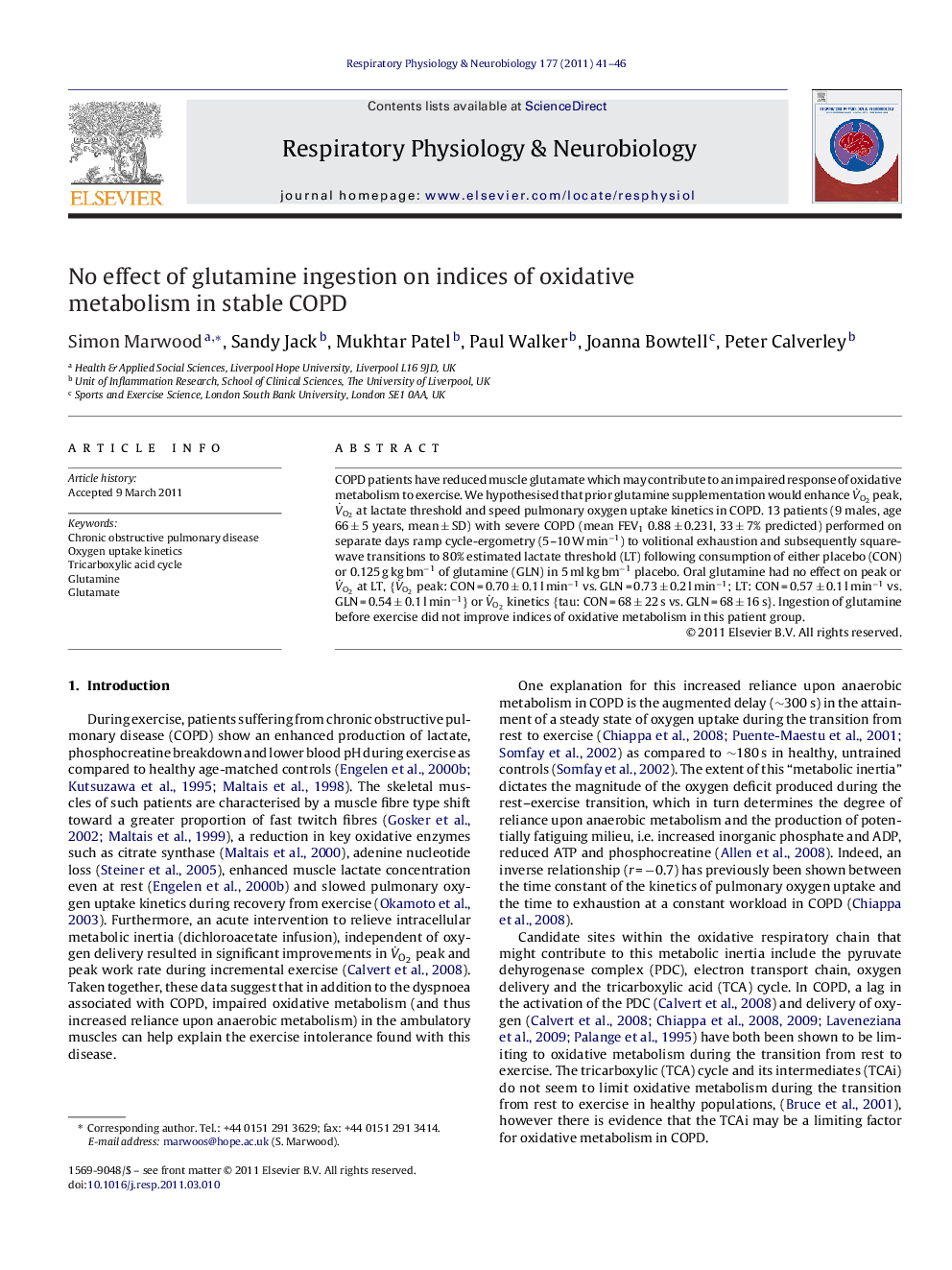| Article ID | Journal | Published Year | Pages | File Type |
|---|---|---|---|---|
| 2847486 | Respiratory Physiology & Neurobiology | 2017 | 6 Pages |
Abstract
COPD patients have reduced muscle glutamate which may contribute to an impaired response of oxidative metabolism to exercise. We hypothesised that prior glutamine supplementation would enhance VËO2 peak, VËO2 at lactate threshold and speed pulmonary oxygen uptake kinetics in COPD. 13 patients (9 males, age 66 ± 5 years, mean ± SD) with severe COPD (mean FEV1 0.88 ± 0.23 l, 33 ± 7% predicted) performed on separate days ramp cycle-ergometry (5-10 W minâ1) to volitional exhaustion and subsequently square-wave transitions to 80% estimated lactate threshold (LT) following consumption of either placebo (CON) or 0.125 g kg bmâ1 of glutamine (GLN) in 5 ml kg bmâ1 placebo. Oral glutamine had no effect on peak or VËO2 at LT, {VËO2 peak: CON = 0.70 ± 0.1 l minâ1 vs. GLN = 0.73 ± 0.2 l minâ1; LT: CON = 0.57 ± 0.1 l minâ1 vs. GLN = 0.54 ± 0.1 l minâ1} or VËO2 kinetics {tau: CON = 68 ± 22 s vs. GLN = 68 ± 16 s}. Ingestion of glutamine before exercise did not improve indices of oxidative metabolism in this patient group.
Keywords
Related Topics
Life Sciences
Biochemistry, Genetics and Molecular Biology
Physiology
Authors
Simon Marwood, Sandy Jack, Mukhtar Patel, Paul Walker, Joanna Bowtell, Peter Calverley,
